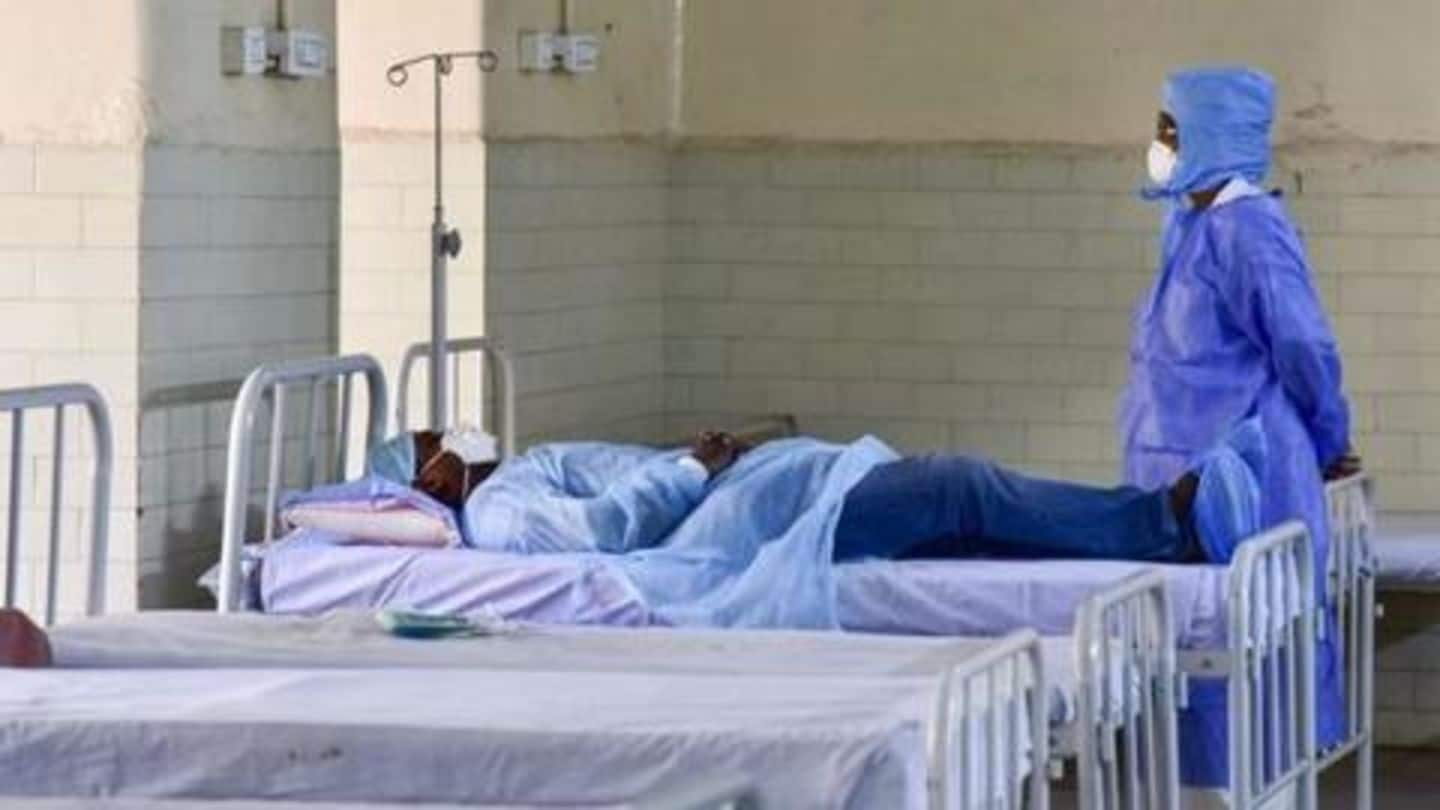
Why was India's discharge policy for COVID-19 patients changed?
What's the story
The Union Health Ministry on Monday said that the discharge policy for COVID-19 patients was revised after a similar move by several other countries.
As per the revised policy, the discharge protocol will vary depending on the severity of the disease.
The Ministry said that the policy has been adjusted to a symptom and time-based strategy as opposed to the previous test-based strategy.
Details
'ICMR data showed patients turn negative 10 days after diagnosis'
Health Ministry Joint Secretary Lav Agarwal said on Monday, "The discharge policy has been changed because several countries have changed their policy from test-based strategy to symptom and time-based strategy."
He said the ICMR laboratory surveillance data also indicated that patients turn negative after around 10 days from the day they first tested positive.
The Ministry had issued FAQs detailing the same on Sunday.
Discharge policy
What is the new discharge policy?
The discharge policy was revised on Friday (May 8). Earlier, COVID-19 patients were discharged after either a chest radiograph had been cleared or after two consecutive RT-PCR test samples had been found negative.
The revised discharge policy mandates that patients need to be tested negative once by RT-PCR after clinical recovery only in severe COVID-19 cases.
Other cases
Discharge policy for mild or moderate cases
For mild/very mild/pre-symptomatic cases, patients can be discharged after 10 days of symptom onset and no fever for three days.
For moderate cases, patients can be discharged if they are asymptomatic for three days or if 10 days have elapsed since the onset of symptoms.
In both cases, patients are advised a seven-day home quarantine after discharge, and no testing is required.
Objection
Doctor's association objects to revised discharge policy
An association of doctors in West Bengal has urged the Health Ministry to rethink the revised policy.
The Association of Health Service Doctors (AHSD) has sent letters to the Ministry and to WB Chief Minister Mamata Banerjee regarding the same.
According to PTI, in the letter, the AHSD said the policy cannot be uniformly exercised everywhere, pointing to different strains of the novel coronavirus.
Quote
'New policy unfit for states without established geographical spread'
The letter stated, "As Gujarat, Maharashtra, Delhi are flooded with cases... the ICMR's recent-most discharge protocol and advisory on quarantine stay may be applicable there, having no other alternative."
It added "But in West Bengal and many other states where the geographical spread is not yet established, discharging confirmed cases without... sampling can't be the choice. Asymptomatics may potentially transmit the virus."
Information
ICMR issued new guidelines on recording COVID-19 deaths
The ICMR also released new guidelines on the recording of COVID-19 related deaths. Under the guidelines, COVID-19 is to be recorded as the "underlying cause of death" when it leads to Acute Respiratory Distress Syndrome (ARDS), cardiac injury, pneumonia, and other primary causes of death.
Recording deaths
Other categories of COVID-19 deaths
Further, the guidelines state that deaths with inconclusive test results but with COVID-19 symptoms will be recorded as "probable COVID-19" deaths.
Deaths, where test results are awaited but COVID-19 symptoms are observed, will be recorded as "suspected COVID-19" deaths.
Deaths where a person tests positive for COVID-19 will be recorded as a "confirmed COVID-19" deaths, irrespective of their symptomatic or asymptomatic status.